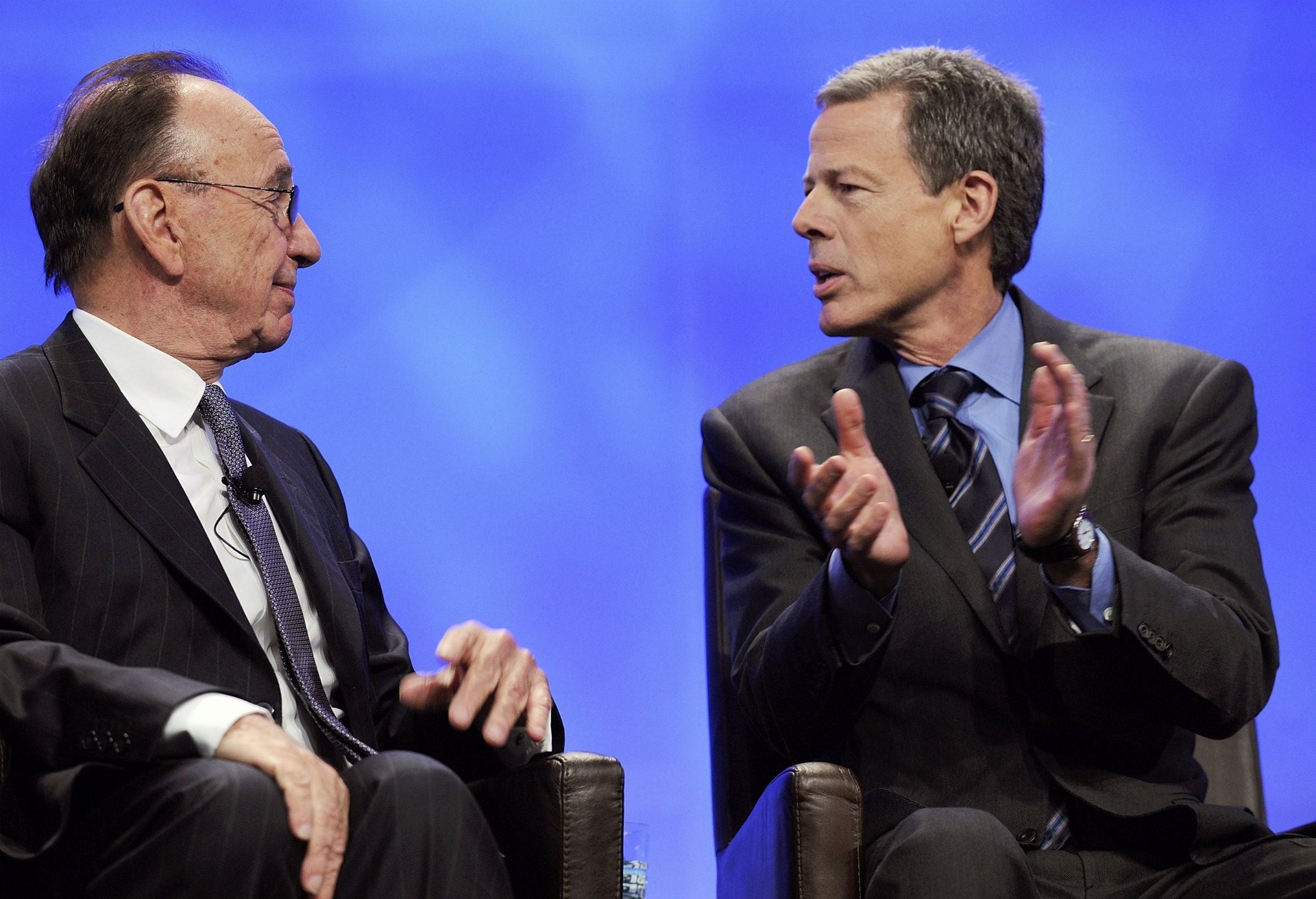We’re about to find out how desperately Time Warner wants to fend off Rupert Murdoch
How badly do Time Warner and its CEO Jeff Bewkes want to avoid being bought by Rupert Murdoch?


How badly do Time Warner and its CEO Jeff Bewkes want to avoid being bought by Rupert Murdoch?
Nobody really knows, but we might have a better sense in just a few hours. Things have gone a bit quiet on the biggest media deal in years, but tomorrow both Time Warner and 21st Century Fox will field calls, hours apart from each other, from Wall Street analysts following the release of their quarterly earnings.
Time Warner is up first and investors are sure to press Bewkes about his rejection of Fox’s buyout offer, which valued the owner of HBO, CNN and TNT at about $85 per share, or $80 billion. Time Warner’s justification is that it believes it can create “significantly more value for shareholders” than Fox is prepared to offer. The company also highlighted the “risk and uncertainty” of Fox’s non-voting stock (that has no rights, for example to decide who runs the company which accounts for about 60% of Fox’s cash and stock bid). Bewkes is also said to be concerned about succession planning at Fox: Murdoch is now 82, his deputy Chase Carey could leave as soon as next 2015, and Murdoch’s son James may not have the right skills for the challenge.
Bewkes may simply be trying to tease out a higher offer. After all, he’s in line for a massive windfall if the company ends up being sold.
Re/Code’s Peter Kafka points out that if Bewkes plays the anti-trust card (by raising concerns that regulators may block the deal on competition grounds) it could be a sign Time Warner is serious about remaining independent. Doing so would make it difficult for the company to end up accepting a higher Fox offer (and potentially complicate bids from rival suitors). If Bewkes evades analyst questions about antitrust concerns, it might suggest that the company is prepared to sell, albeit at the right price.
For its part, the Murdoch-owned Wall Street Journal (paywall) has already suggested that Fox isn’t prepared to raise the cash portion of its bid by much. (It could raise its overall bid to as high as $95/share, but would keep the cash component of that bid at 40%, the Journal report said.)
But that doesn’t mean Fox isn’t interested. To allay Time Warner, president and COO Carey has reportedly committed to sticking around until a deal is secured. Still, Murdoch isn’t likely to make any corporate governance concessions (like ceding a controversial dual class share structure that allows him to maintain control of the company without owning a majority of it) to placate Time Warner. “Everyone who owns Fox [shares] knows that a Murdoch will always be in control,” BTIG analyst Rich Greenfield says in an email. “I think the only question is how many years Chase commits to as part of a deal.”